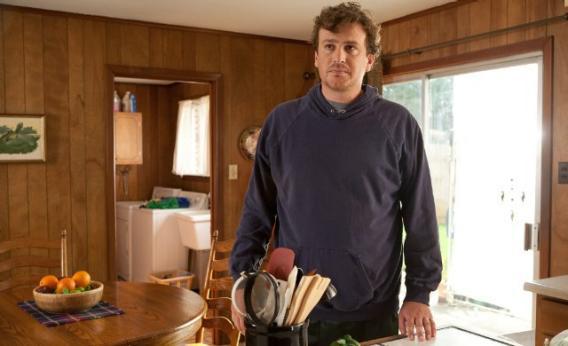When Cyrus, the Duplass brothers movie starring John C. Reilly and Jonah Hill, was released two years ago, there was much talk of mumblecore going mainstream. The Duplasses—together with Joe Swanberg and Andrew Bujalski—were among the original filmmakers for which the much-disputed term “mumblecore” was first coined, in 2005, to describe a spate of semi-plotless, micro-budget indie movies about the lives of American twenty-somethings. Five years later, that oft-maligned movement was unexpectedly breaking through to a larger audience, and attracting familiar Hollywood actors. In the Guardian, Demetrios Matheou noted that the cast of Cyrus seemed to indicate “yet another comedy by Judd Apatow or Will Ferrell,” before emphasizing the differences between those sorts of films and the one the Duplass brothers had made.
The follow-up movie by the Duplasses, the tenderhearted and beguiling Jeff Who Lives at Home, opened this past Friday. It stars Jason Segel, who got his break in the Apatow-produced TV series Freaks and Geeks, memorably starred in the Apatow-produced Forgetting Sarah Marshall, and had a role in Knocked Up, the movie that confirmed Apatow’s status as a major writer-director. (Segel is joined in the movie by Ed Helms, Susan Sarandon, and Judy Greer.) Apatow himself, meanwhile, is an executive producer on the upcoming HBO series Girls, created by Lena Dunham, who made her name with the partly mumblecore-inspired Tiny Furniture.
Is this a coincidence? I don’t think so: Apatow’s big, raunchy comedies have always had more in common with mumblecore movies than is apparent at first glance. His approach to filmmaking has important similarities with the working methods of the Duplasses et al—and his primary influences include some key forebears to the mumblecore movement (which, it should be noted, is a loose network of young filmmakers whose movies are easily compared—not a programmatic effort of any kind). As a few players in that network have begun hitting the relative bigtime, Apatow—who directed his first feature film, The 40-Year-Old Virgin, the same year the term “mumblecore” was coined—has been heading in an increasingly personal direction, toward looser, more autobiographical films that have a surprising amount in common with the work of his younger, “generation DIY” compatriots. (I have in mind both Funny People and the upcoming This Is 40.)
I asked Apatow about this in 2010. Cyrus, he said, was one of his favorite movies of that year, and it made him wonder whether he should try “the same approach” the Duplass brothers use on one of his next movies—filming long, largely improvised conversations, for instance. Apatow has always employed improv in his work; one might assume this is simply because of the training many comics get at Second City or the Upright Citizens Brigade, but Apatow (whose comedy background is in stand-up, not improv) has often mentioned his love for serious directors who relied to varying degrees on improvisation, including Robert Altman, Hal Ashby, and, especially, John Cassavetes. “I like filmmakers who let something unexpected happen on camera,” he told Variety. “Their work is alive.” Here he is talking about why he often works with friends and family:
I think some great work has happened because people were intimate collaborators, whether it’s Scorsese, John Cassavetes movies or Woody Allen films, a lot of these people were friends or were married. So when they’re more comfortable around each other, sometimes they can reveal more of themselves on film […].
Bujalski, Swanberg, Duplass and their peers also work often with intimates; Cassavetes is such an obvious influence on their work that “Slackavetes” is the one of the most popular alternatives to the “mumblecore” label (which critics keep trying to kill). And they, too, generally have a preference for acting that is less about constructing some character different from yourself and more about being yourself on screen.
That technique recalls another major influence, mentioned in the quote above and shared by both Apatow and his younger colleagues: Woody Allen. Allen has been called “mumblecore’s secret avatar”; Apatow has “watched all of his movies so many times” that he considers the writer-director “beyond discussing as an influence.” Like so many of Allen’s comedies, Apatow’s films and mumblecore movies often feature tentative, self-deprecating young men who struggle romantically (unlike the brasher, manlier men who tend to populate the work of Cassavetes).
Which brings up the last big commonality between Apatow and mumblecore: subject matter. Most of his films and theirs are about men and women awkwardly poised between the habits and trappings of youth and the responsibilities of adulthood. Jeff Who Lives at Home is, as the title suggests, no exception. And I suspect it will be enjoyed by many fans of Apatow, as well as those of mumblecore—which should not, at this point, come as a big surprise.
